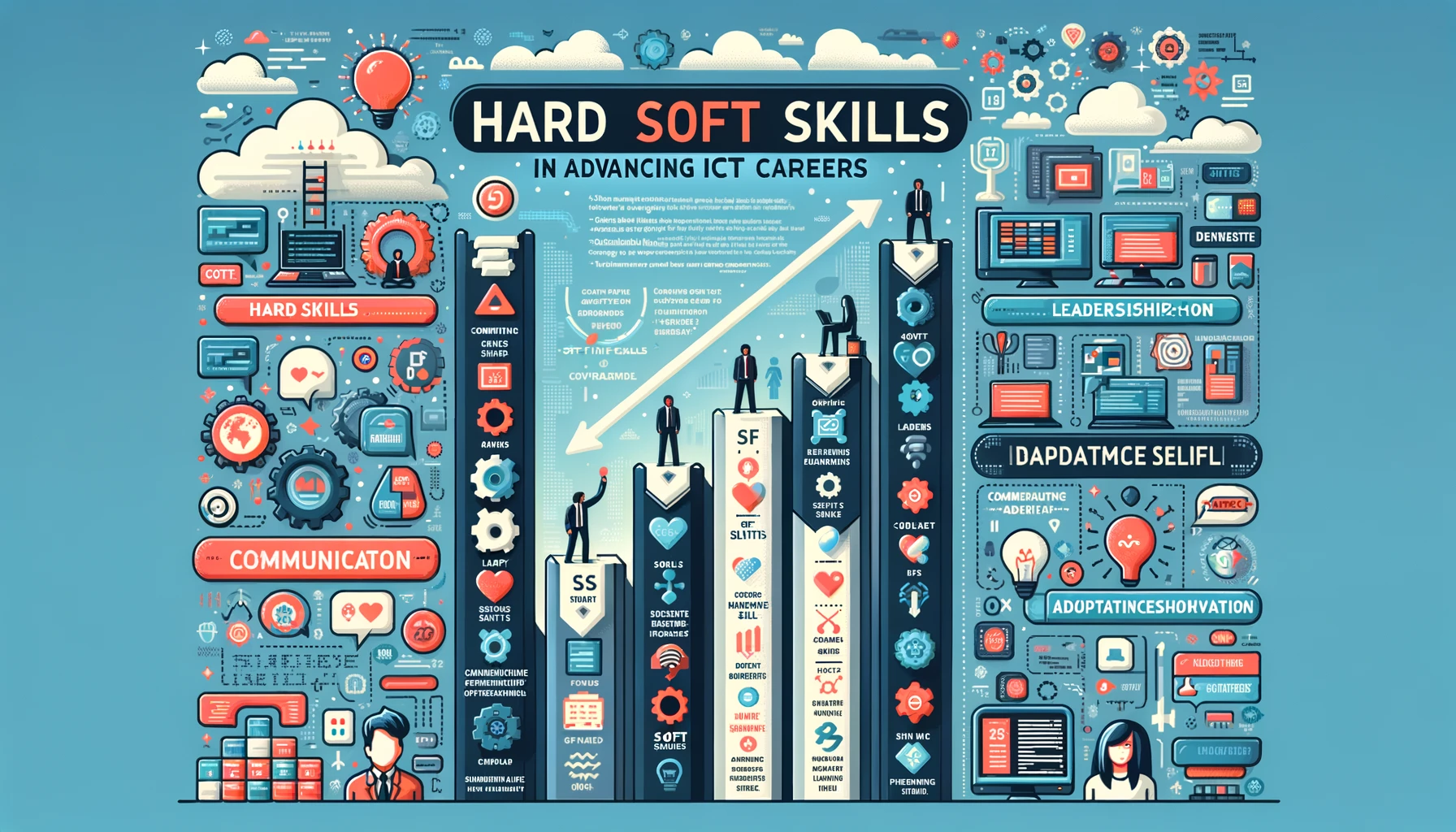
Why Mastering Soft Skills Can Outweigh Hard Skills.
In the ICT industry, the journey towards professional excellence often focuses on the acquisition of hard skills – those technical abilities and knowledge that are easily quantifiable and teachable. Yet, as one progresses through their career, especially when aspiring to leadership roles, the value of soft skills becomes ever more apparent. These are the personal attributes that enable someone to interact effectively and harmoniously with other people. They are not as straightforward to acquire if one doesn’t inherently possess them, yet they hold a pivotal role in career advancement.
The adage that you don’t need to be the best in any one thing to be considered the best in your industry aligns with this perspective. In the ICT sector, professionals often find themselves in a competitive environment where technical skills can become relatively homogeneous. It’s the soft skills that can set one apart, fostering innovation, driving teamwork, and leading to successful project outcomes. These skills include communication, leadership, empathy, adaptability, and problem-solving – abilities that robots and algorithms cannot replicate, at least not to the nuanced level humans can.
As one climbs the corporate ladder, the technicalities of coding or network setup may take a backseat to the need for strategic thinking, effective people management, and the ability to navigate complex organizational dynamics. These soft skills become increasingly crucial. They’re the lubricant that keeps the gears of a company turning smoothly. In high-stakes situations, the ability to convey complex information clearly, to negotiate between different stakeholders, or to inspire and lead a team becomes more valuable than the ability to write flawless code.
For those aspiring to reach the zenith of their industry, such as a CTO position in a large company, it becomes essential to complement hard skills with a robust set of soft skills. This combination can be rare and thus highly sought after in the ICT industry. It’s these soft skills that often determine who can rise to leadership positions and who remains in the technical ranks.
Developing soft skills can require a fundamental shift in focus and often a personal transformation. Unlike hard skills, which can be learned through courses and certifications, soft skills are often developed through experience, reflection, feedback, and a willingness to step outside one’s comfort zone. They require a level of self-awareness and emotional intelligence that is not always easy to cultivate.
While technical prowess may get your foot in the door, it’s the soft skills that unlock the path to senior roles. They are the differentiators that can propel a career forward, enabling professionals in the ICT industry to lead, innovate, and drive their organizations to success in an increasingly complex and fast-paced digital world.



